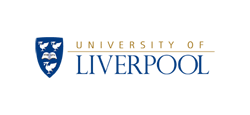Comp 207:
Database development

Comp 207:
Database development
Recommended texts:
•R. Elmasri, and S.B. Navathe: Fundamentals of Database Systems (5th Edition and above). Addison Wesley.
•M. Kifer, A. Bernstein, and P.M. Lewis: Database Systems: An Application-Oriented Approach. Addison Wesley.
•H. Garcia-Molina, J.D. Ullman, and J. Widom: Database Systems - The Complete Book . Prentice Hall.
Other useful texts:
•Ullman &Widom: Database Systems - The Complete Book . Prentice Hall.
•Connolly & Begg. Database systems. Addison Wesley.
Aims:
This module aims at introducing students to:
•the problems arising from concurrency in databases, and how they are solved;
•the problems involved in the integration of heterogeneous sources of information and semi-structured data;
•non-relational databases;
•techniques for analysing large amounts of data.
Learning outcomes:
At the end of the modules students should be able to:
•identify and apply the principles underpinning transaction management within DBMS;
•demonstrate an understanding of advanced SQL topics;
•illustrate the issues related to Web technologies and DBMS and XML as a semi-structured data representation formalism;
•identify the principles underlying object relational models;
•state the main concepts in data warehousing and data mining.
Teaching and learning strategies:
Formal Lectures: In a typical week, students will be expected to attend three hours of formal lectures, to introduce students to the concepts and methods covered by the module.
Practicals and Tutorials: In a typical week, students will be expected to attend one hour of tutorials or computer lab practicals.
Private study: In a typical week students will be expected to devote about 6 hours of unsupervised time to private study. Private study will provide time for reflection and consideration of lecture material, background reading and completion of the assessment tasks.
Assessment: Continuous assessment will be used to test to what extent practical skills have been learnt. A final examination at the end of the module will assess the academic achievement of students.
Course notes:
Printed course notes are available from the Helpdesk. Updated versions of the slides will appear be published online before the lectures.
Last modified: Mon Sept 26th, 2011
Learning resources:


Demonstrators
Martyn Lloyd-Kelly, Luke Riley (room G.22)
Thomas Nickson (room 3.08)
Puteri Nor Ellyza Nohuddin (room 2.11)
Course admin
Assignments:
There are two assignments that attract 20% of the final mark.
Assignments submission
Assignments are handed in electronically, using the Departmental Electronic Submission system. More details will be posted later.
The naming convention for the assignment is to name the file as: YourSurname-AssingmentX.zip.
Announcements
• Next lecture will take place on Oct 4th
• Lab sessions will start in week 3 (October 10th)